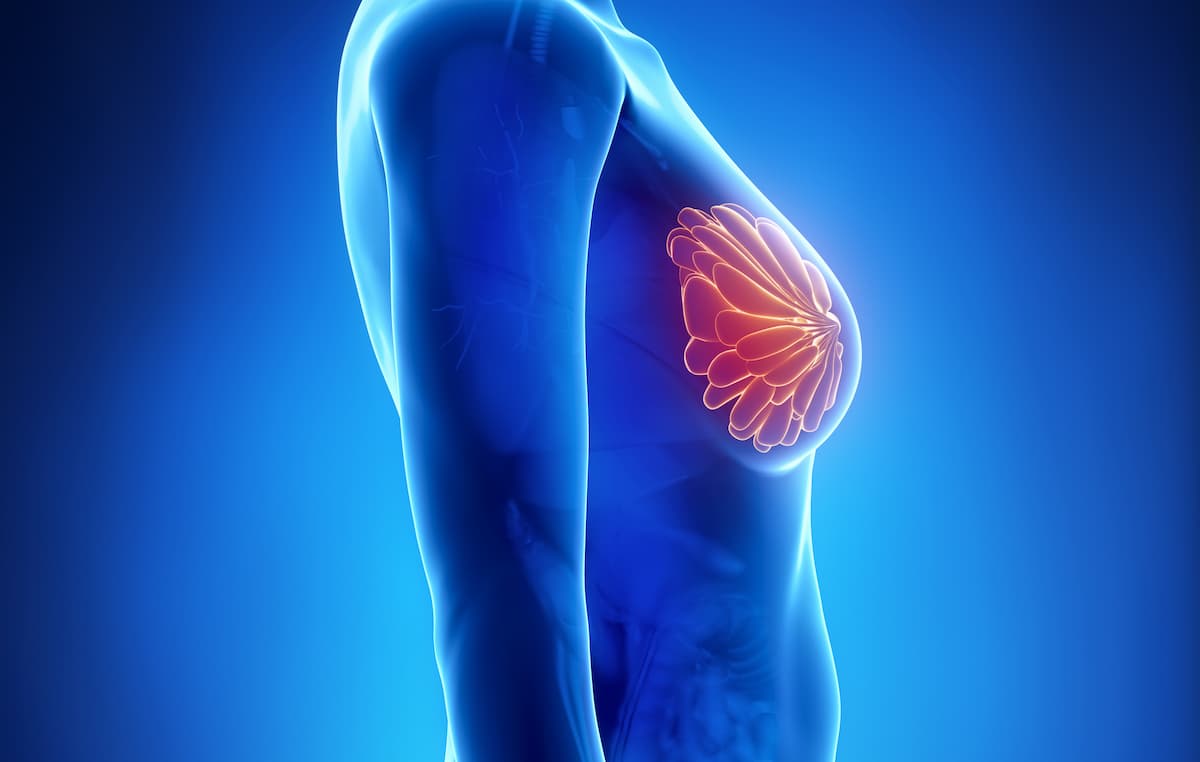Trastuzumab Deruxtecan Is Approved in EU for HER2-Low Metastatic Breast Cancer
The European Commission approval for trastuzumab deruxtecan in HER2-low metastatic breast cancer is based on data from the phase 3 DESTINY-Breast04 trial.
Trastuzumab deruxtecan (Enhertu) was approved in the European Union for adult patients with metastatic HER2-low breast cancer following prior chemotherapy or disease recurrence within 6 months of receiving adjuvant chemotherapy, according to a press release from AstraZeneca and Daiichi Sankyo.1
"The European approval of [trastuzumab deruxtecan] in the HER2-low metastatic breast cancer population marks the first time we will have the opportunity to treat patients with lower levels of HER2 expression with a HER2-directed therapy," according to an expert from the International Breast Cancer Center in Barcelona, Spain.

The European Commission’s approval of trastuzumab deruxtecan was supported by findings from the phase 3 DESTINY-Breast04 trial (NCT03734029), the data for which were presented at the 2022 American Society of Clinical Oncology (ASCO) Annual Meeting.
“The European approval of [trastuzumab deruxtecan] in the HER2-low metastatic breast cancer population marks the first time we will have the opportunity to treat patients with lower levels of HER2 expression with a HER2-directed therapy,” Javier Cortés, MD, PhD, head of the International Breast Cancer Center in Barcelona, Spain, said in the press release. “[Trastuzumab deruxtecan] has shown a significant improvement in outcomes compared [with] chemotherapy for these patients, reinforcing its potential to become a new standard of care.”
In the phase 3 DESTINY-Breast04, trastuzumab deruxtecan lowered the risk of disease progression or death by 50% vs chemotherapy of physician’s choice in patients with HER2-low metastatic breast cancer with hormone receptor (HR)-positive or HR-negative disease (HR, 0.50; 95% CI, 0.40-0.63; P <.0001).2 Additionally, investigators observed a median progression-free survival of 9.9 months in the trastuzumab arm compared with 5.1 months in the chemotherapy arm. The median overall survival was 23.4 months with trastuzumab vs 16.8 months with chemotherapy.
Investigators reported that the safety profile of trastuzumab deruxtecan in the DESTINY-Breast04 trial was consistent with those reported of the agent in previous studies.
“These results have the potential to improve the treatment outcome for more than half of patients historically categorized as having HER2-negative breast cancer,” the study authors wrote.2
Previously, the FDA approved trastuzumab deruxtecan patients with unresectable or metastatic HER2-low breast cancer in August 2022.3 The FDA approval was also supported by findings from the phase 3 DESTINY-Breast04 trial.
References
- Enhertu approved in the EU as the first HER2-directed therapy for patients with HER2-low metastatic breast cancer. News release. AstraZeneca and Daiichi Sankyo. January 26, 2023. Accessed January 27, 2023. bit.ly/3Y6CrHn
- Modi S, Jacot W, Yamashita T, et al. Trastuzumab deruxtecan in previously treated HER2-low advanced breast cancer. N Engl J Med. 2022;387:9-20. doi:10.1056/NEJMoa2203690
- FDA approves first targeted therapy for HER2-low breast cancer. News release. FDA. August 5, 2022. Accessed January 27, 2023. https://bit.ly/3BNUxWy